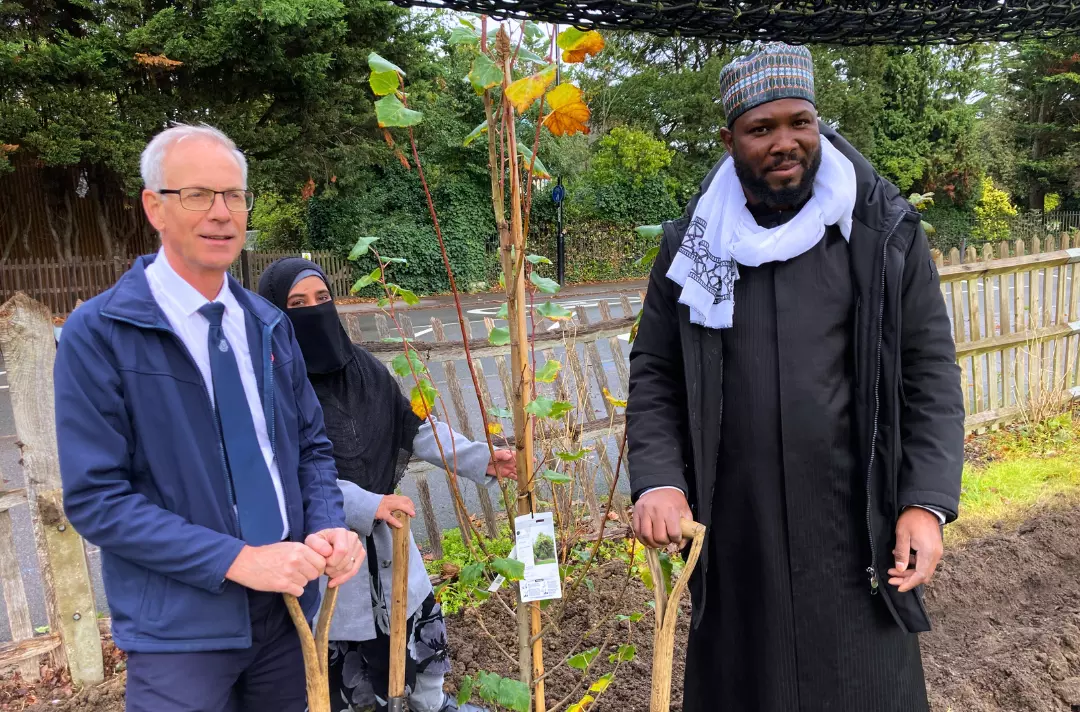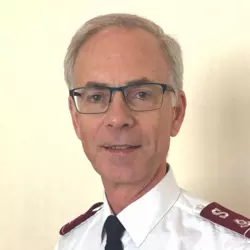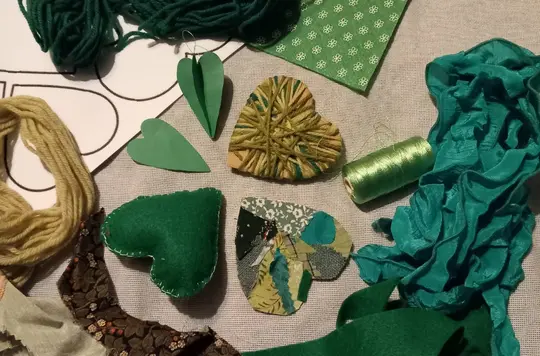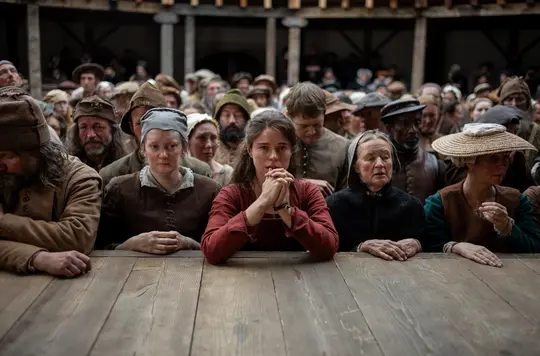11 November 2023
How The Salvation Army engages with different faiths
Lieut-Colonel Jonathan Roberts

Ahead of Inter Faith Week (12–19 November), Lieut-Colonel Jonathan Roberts considers the importance of interfaith harmony.
One morning in late October I was with a group of people representing different faiths – Christians, Jews and Muslims – at the Trevor Bailey Sports Ground in Dulwich. It is named after the former England cricketer, but we weren’t there to play cricket: we were there to plant trees.
The Faiths Forum for London organised the event as part of its year-long project to plant 100 trees across the capital. But the 15 saplings we planted that morning were as much about interfaith harmony as about the environment. In many parts of the territory Salvationists live and work alongside people of non-Christian religions. Interfaith engagement is therefore an important part of loving God and loving others. Like the saplings planted in Dulwich, it could grow to have a lasting impact for good in our communities.
The tree-planting was a significant event, especially in light of the Israel-Gaza conflict that had erupted a few weeks before, but it’s just one example of the kind of interfaith engagement envisaged by the UK and Ireland Territory’s new Ecumenical and Interfaith Strategic Plan.
The overall purpose of this plan is to ‘build relationships and partnerships with other Christians and people of other faiths’ – we’ll talk more about the ecumenical elements of the plan during the Week of Prayer for Christian Unity in January.
There are three main branches to working with and relating to people of other faiths.
First, respectful dialogue. This means listening to and learning from one another in a spirit of humility and genuine interest. Dialogue can deepen mutual understanding and trust.
Second, joint social action. Interfaith engagement involves working together for the common good. Communities are often served better when people of different faiths act together. And local decision-makers are more likely to listen and respond when faith groups express concerns with a united voice.
Third, sensitive witness. Salvationists believe that Jesus Christ is the unique revelation of God and the world’s only Saviour. We also realise that other religions may contain elements of truth and, as The Salvation Army Handbook of Doctrine says, we ‘trust to ... God ... all those whose life and experience, personal creed and spiritual opportunities are different from our own because he is the loving Creator of all’. These are not contradictory statements. They are complementary and mean that, while sharing the good news is a mission priority, we need to witness with sensitivity.
The territory will encourage dialogue, including involvement in national groups such as the Inter Faith Network for the UK and in local interfaith groups. To support interfaith engagement, the territory will be producing guidelines on dialogue, witness and community partnerships and will organise a webinar to explore interfaith matters – look out for that in 2024!
In the meantime, on a local level, there are lots of opportunities for interfaith engagement that we can each explore as corps or individuals. For example, the Inter Faith Buddies Scheme brings two people of different faiths together to engage in weekly dialogue for six weeks. You could also get involved in interfaith community initiatives and joint activities, such as litter picks, tree planting and food banks, or approaching the council about an issue of local concern.
In our multicultural and multi-faith society, we need to witness to the love of God for all people and work for greater social cohesion. What can you do where you are?
Reflect and respond
- How regularly do you listen to and learn from others in a spirit of humility and genuine interest?
- How comfortable are you with the statement ‘other religions may contain elements of truth’?
- Find out what’s happening near you during Inter Faith Week.
- Find an interfaith group in your area.
- Register to take part in the Inter Faith Buddies Scheme.
- Read more about ecumenical and interfaith matters online or email ecumenical@salvationarmy.org.uk.
Written by

Lieut-Colonel Jonathan Roberts
Territorial Ecumenical Officer, THQ











